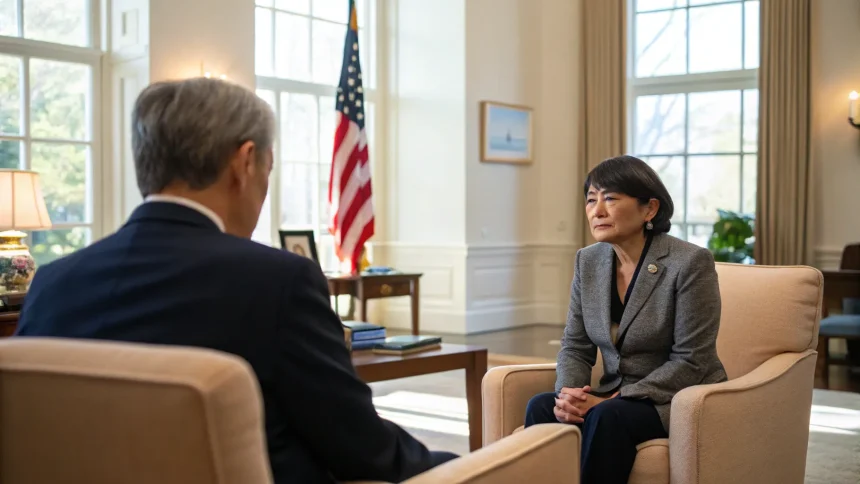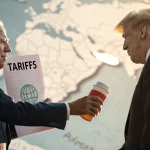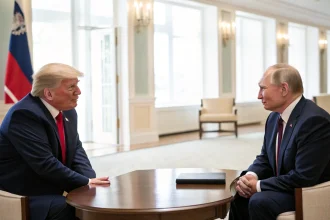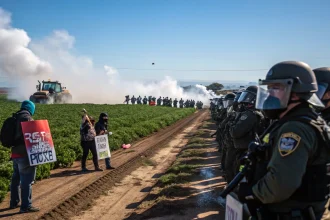The Trump administration placed significant emphasis on interviewing Ghislaine Maxwell as part of its strategy to address complications arising from the Jeffrey Epstein case. According to information obtained, officials identified Maxwell, widely known as Epstein’s accomplice, as a critical figure whose testimony could help the administration manage the political and public relations challenges created by the Epstein files.
Maxwell, a British socialite and former associate of Epstein, became a person of interest for investigators after Epstein’s arrest on sex trafficking charges in 2019. Her subsequent arrest in July 2020 marked a major development in the case that had embroiled high-profile figures across political and social spheres.
Strategic Response to Mounting Pressure
The administration’s focus on Maxwell appears to have been a calculated move to counter growing scrutiny over connections between Epstein and various government officials. By prioritizing Maxwell’s interview, the Trump White House sought to demonstrate proactive engagement with the case while attempting to distance itself from the scandal.
This approach came as the administration faced questions about Epstein’s relationships with powerful individuals, including former Labor Secretary Alexander Acosta, who had previously approved Epstein’s controversial 2008 plea deal as a federal prosecutor in Florida.
Maxwell’s Central Role in the Investigation
Investigators viewed Maxwell as potentially holding critical information about Epstein’s alleged sex trafficking operation and his network of contacts. Her close relationship with Epstein, spanning decades, positioned her as one of the few people who could provide insight into the full scope of his activities.
Maxwell was eventually charged with multiple crimes related to her alleged role in recruiting, grooming, and trafficking young women for Epstein. In December 2021, she was convicted on five of six counts, including sex trafficking of a minor.
Political Implications of the Epstein Case
The Epstein scandal created significant political complications for multiple administrations and public figures. For the Trump administration specifically, the case presented unique challenges due to the president’s previous social connections with Epstein in Palm Beach, Florida.
By focusing on Maxwell, officials appeared to be attempting to:
- Shift public attention to ongoing investigative efforts
- Demonstrate commitment to pursuing Epstein’s associates
- Create distance between the administration and Epstein’s crimes
Critics questioned whether the administration’s interest in Maxwell was genuinely focused on justice or primarily motivated by political damage control. Supporters argued that pursuing Maxwell represented a legitimate effort to hold Epstein’s enablers accountable.
The Justice Department’s handling of the Maxwell case occurred against the backdrop of intense public interest in Epstein’s connections to powerful figures across the political spectrum. Documents related to Epstein, often referred to as the “Epstein files,” contained potentially damaging information about numerous high-profile individuals.
The administration’s strategy regarding Maxwell highlights the complex intersection of criminal justice, politics, and public perception that characterized the government’s response to the Epstein scandal. As investigations continue and more information becomes public, the full impact of these efforts remains to be evaluated.









